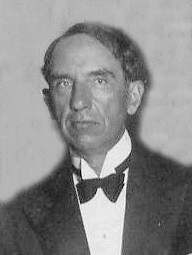Jules Supervielle facts for kids
Quick facts for kids
Jules Supervielle
|
|
|---|---|
 |
|
| Born | 16 January 1884 Montevideo, Uruguay |
| Died | 17 May 1960 |
Jules Supervielle (born January 16, 1884 – died May 17, 1960) was a famous poet and writer. He was born in Montevideo, Uruguay, but also had strong ties to France. He was so good at writing that he was considered for the Nobel Prize in Literature three times!
Jules Supervielle had his own unique style. He didn't follow the popular art movement called surrealism. This movement often used "automatic writing," which meant writing without thinking too much. Instead, Supervielle used other modern poetry ideas. His way of writing was special and even influenced other writers in the 1940s. Many well-known authors admired his work.
Early Life and Family
Jules Supervielle was born in Montevideo, Uruguay. His family owned a bank. His father was from a region in France called Béarn, and his mother was from the Basque region.
Sadly, both of his parents died before he was even one year old. This happened while they were visiting France. Jules was first raised by his grandmother. Later, when he returned to Uruguay, his aunt and uncle took care of him. He started writing short stories, called fables, when he was just nine years old.
In 1894, he moved to Paris, France, with his aunt and uncle. In 1901, he published his first collection of poems. It was called Brumes du passé. In 1906, he married Pilar Saavedra in Montevideo. They had six children together.
Writing Career
In 1910, Jules Supervielle finished his university studies. His main paper was about how nature is shown in Spanish-American poetry. During the First World War, he joined the army and served until 1917. After the war, he went back to writing poetry.
In 1919, his poems caught the attention of famous writers like André Gide and Paul Valéry. This helped him connect with a major French literary magazine. He published his first important collection of poems, Débarcadères, in 1922. His first novel, L'Homme de la pampa, came out in 1923.
A very important collection of his poems, Gravitations, was published in 1925. Many people consider it one of the best French-language poetry books of the 20th century. Six years later, he published a book of short fantasy stories called L'Enfant de la haute mer. He also wrote his first important play, La Belle au bois, around this time.
During the Second World War, Supervielle faced some challenges. He had health problems and money troubles. Because of this, he moved back to Uruguay for a while. He received several literary awards for his work. He was also given a special honor called Officier de la Legion d'honneur.
After the war ended, he returned to France. He worked as a cultural helper for Uruguay in Paris. In 1946, he published his first mythological tales, titled Orphée. In 1947, one of his plays, Shéhérazade, was performed at the very first Avignon festival. This festival is a big event for theater in France.
Jules Supervielle wrote about his own life in a book called Boire à la source in 1951. His last collection of poems, Le Corps tragique, came out in 1959. He was chosen as the "Prince of poets" shortly before he passed away in Paris in May 1960.
His Legacy
Jules Supervielle's work continues to be important today. In 1990, a city in France named Oloron-Sainte-Marie created the Jules-Supervielle prize. This award is given to important modern poets. Some famous poets who have won it include Alain Bosquet and Lionel Ray.
All of Supervielle's poems were published together in a special collection in 1996. This shows how much his writing is valued. The Lycée Français de Montevideo, a French school in Montevideo, is named after him.
See also
 In Spanish: Jules Supervielle para niños
In Spanish: Jules Supervielle para niños
 | James Van Der Zee |
 | Alma Thomas |
 | Ellis Wilson |
 | Margaret Taylor-Burroughs |

